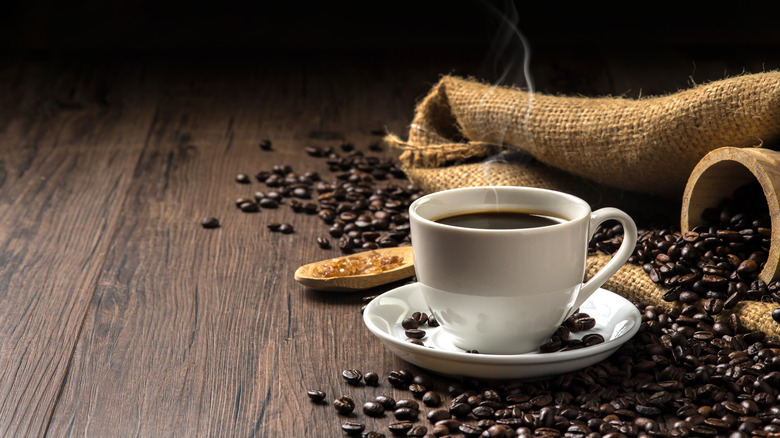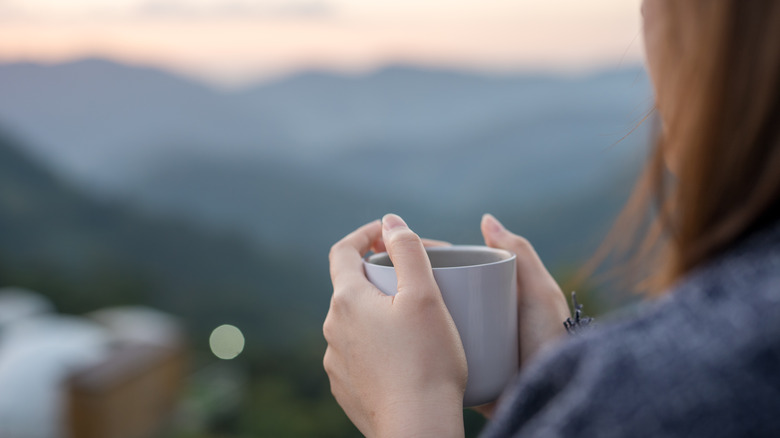Read This Before Drinking Coffee On An Empty Stomach
Coffee: Many of us can't live without it. In fact, it is among one of the most popular beverages in the United States, with 62% of Americans consuming at least one cup per day, according to the National Coffee Association. People love their cup of joe for its energy-boosting and focus-enhancing properties, which means most people probably consume it first thing in the morning. But while it can be a great way to get the jolt of energy you need to start your day, drinking it too early might not be the best idea.
While coffee is famous for being a morning beverage, drinking it on a completely empty stomach can have some unpleasant side effects. Because coffee is acidic, it can trigger acid reflux and heartburn in those who are sensitive to acidity, per LiveStrong. It can also cause a spike in cortisol, the body's stress hormone, which can lead to feelings of increased jitteriness, stress, and maybe even anxiety.
"Drinking coffee on an empty stomach is basically a double-whammy for our stress hormones. Either eat breakfast first, start with tea, or add some 'buffers' to your coffee: L-theanine, collagen, creamer, etc.," Edie Horstman, an integrative nutrition health coach and nutrition consultant for Camille Styles, explains. There may be other reasons to avoid drinking coffee on an empty stomach, too.
Experts recommend drinking coffee in the late morning
Registered dietitian and nutritionist Maya Feller also advises against using coffee as a breakfast substitute, so even if you happen to experience no ill effects drinking coffee on an empty stomach, it still might be a good idea to grab a slice of toast along with that cup of morning brew (via Camille Styles).
However, while you might not want to drink coffee on an empty stomach, you don't want to consume your caffeine too late, either. Drinking coffee in the afternoon can lead to disrupted sleep, since caffeine can stay in the body's system for up to six hours, meaning you might still be feeling the effects of that last cup of joe at bedtime, according to CNBC. Therefore, many sleep experts recommend drinking your last cup of coffee no later than 3 p.m.
As a general rule, coffee is best consumed in the late morning, after breakfast, when the body's initial morning cortisol spike starts to wane (via LiveStrong). But in the end, everyone's body is different, so what feels good for some people might not work for others. Ultimately, many experts recommend simply listening to your body to determine when is the best time to drink coffee for your specific needs.
"In my work with clients, we strive to really listen to the messages that their bodies are telling them and find a coffee consumption pattern that best suits their individual needs," certified nutritionist and celebrity chef Serena Poon told Camille Styles.

